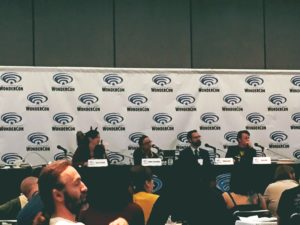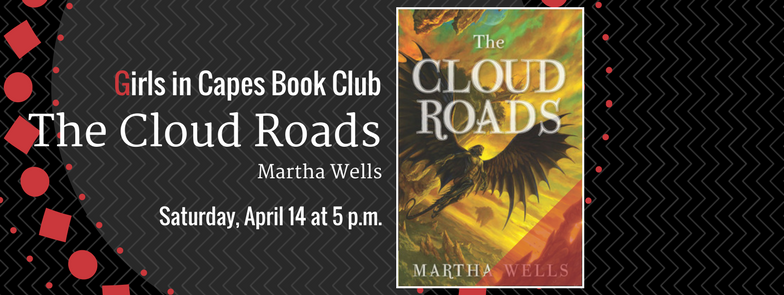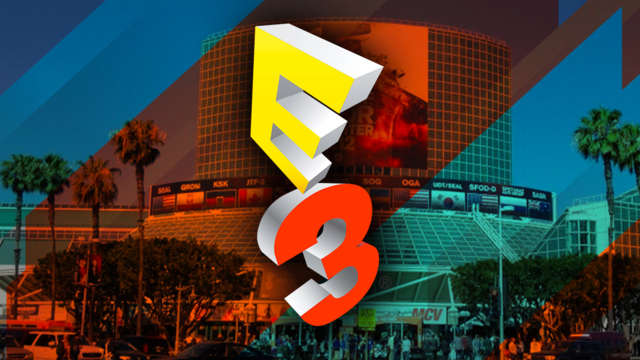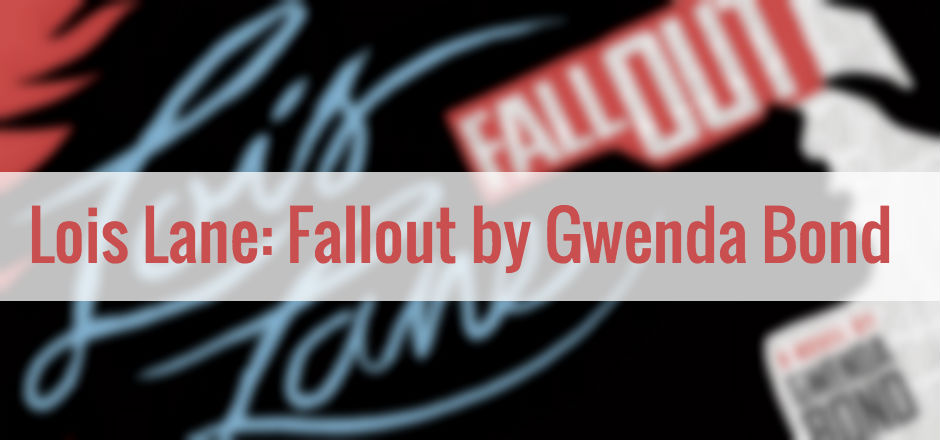WonderCon took place on March 31-April 2 at the Anaheim Convention Center in Anaheim, CA. On April 1, the “President B****: Gender and the Superhero Narrative” panel was part of the Comics Arts Conference series, which adopted a more critical tone than the other entertainment-driven panels.
The featured panelists were Tara Prescott (University of California, Los Angeles), Philip Smith (College of the Bahamas), Maite Urcaregui (University of California, Santa Barbara), and David Hall (Old Dominion University), all of who contributed essays to the upcoming collection, Gender and the Superhero Narrative. The panel examined gender roles and the larger issues of comics in post-Trump America and beyond.
Prescott focused her portion of the discussion on Kamala Khan — otherwise known as the fourth titleholder of Ms. Marvel — who is the first Muslim character in the Marvel universe to headline her own comic. Prescott spoke about how Kamala is representative of her race and gender because of the emergence — and necessity — of diverse, female, comic book writers and artists.
Co-creator Sana Amanat is Pakistani-American and writer G. Willow Wilson is a Muslim American; both are women. Prescott said comics are “not only [about] whose stories are told, but who gets to tell them.” She then brought up common issues in comics and video games such as objectification, the male gaze, white savior, and how white, heterosexual males have more influence in the economics of both industries. Prescott emphasized that readers/fans have to hold creators and publishers accountable for diversity.
The next panelist to speak was Smith, who discussed Wonder Woman’s brief time as the symbolic ambassador for the United Nations. Smith said that Wonder Woman is qualified as a political figure because she promotes awareness for domestic violence, but her “scanty” clothing was her downfall. He presented a picture of Hillary Clinton who exemplifies taking care of appearances, but in doing so, she sexualizes her image. This extends to all women in politics — if they take care of their appearances, they are sexualized, and if they don’t, they are unqualified. Smith underlined the issue of women being seen as a sexualized object rather than an intellectual subject.
Following Smith was Urcaregui, whose topic was “Intersectional Feminism in Bitch Planet.” She picked out a quote from Black Feminist Thought by Patricia Hill Collins about how structures of oppression work together to produce injustice. Bitch Planet’s genre is feminist dystopian, and the non-compliant women in the comic are sent to an off-planet prison by order of “The Fathers.” Urcaregui paid particular attention to a large black woman who does not possess the female body shape that society desires. She is forced to look at a mirror that reflects the kind of body she truly desires, but her reflection doesn’t change. As a result, she laughs at her oppressors. Urcaregui concluded that self-valuation is an act of resistance.
Last but not least, Hall covered “The Gothic Foundation of Trans Representation in Popular Culture” with a focus on Mystique from X-Men. Hall pointed out that society has an obsession with identifying non-conforming bodies, and Mystique is one of those bodies. Thus, he argued that Mystique is trans because she doesn’t have definitive genitals. Degenerates corrupt evolution, and these degenerates include women, queer, and minorities.
Hall spoke about how Mystique is villainous — sometimes anti-hero — because of her “purposeful deceit,” which is considered a crime. Hall wrapped up his discussion, saying, “Mystique destroys restrictions of gender norms.” People’s fear of Mystique reflects society’s perception of trans people.
The issues raised in each panelist’s discussion are issues that have magnified in post-Trump America. What resonates with all of the panelists is to remain in dialogue with the creators. By including more diversity on the creative side, the readership will reflect that diversity.







